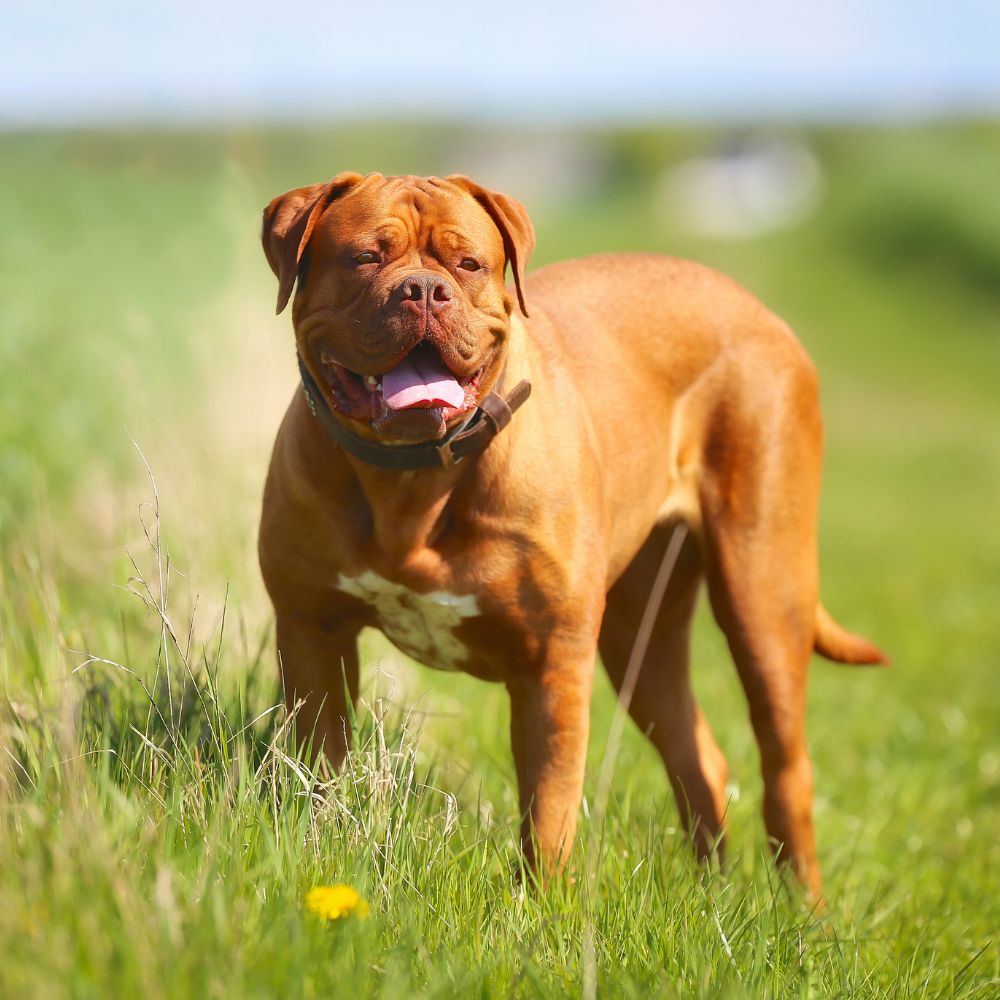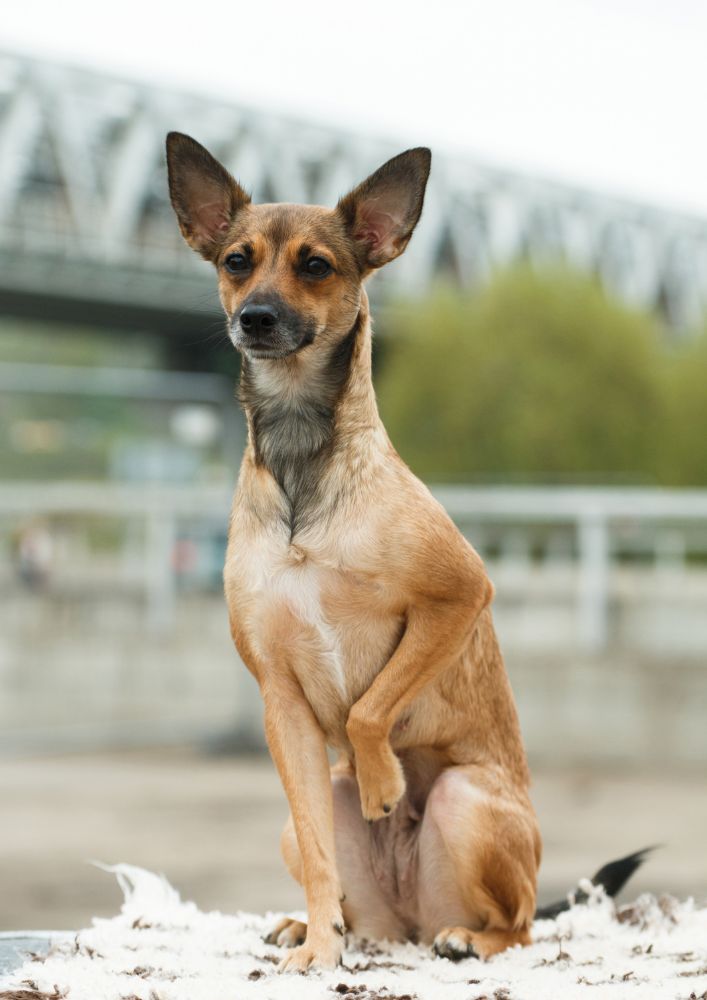Everything You Need to Know About the French Mastiff

French Mastiffs, also known as Dogue de Bordeaux, are a beloved and impressive dog breed known for their loyalty, strength, and protective nature. They make excellent family pets and are also known for their gentle demeanor with loved ones.
A Brief History
The French Mastiff is one of the oldest French dog breeds, dating back to ancient times. They were originally used for guarding, hunting, and even pulling carts. The breed’s exact origins are unclear, but they are thought to be descendants of the Molossus dogs of ancient Rome. Over the centuries, they have served as loyal protectors and companions.
Appearance and Size
French Mastiffs have a powerful, muscular build with a short, fine coat that is typically a rich shade of fawn, ranging from a light to a dark red. They are large dogs, typically weighing between 99 to 150 pounds (45 to 68 kg). Males are usually 23.5 to 27 inches (60 to 69 cm) tall at the shoulder, while females are slightly smaller at 23 to 26 inches (58 to 66 cm).
Loyal and Protective
French Mastiffs are well-known for their loyalty and protective nature. They are affectionate with family and alert with strangers, making them excellent guard dogs. Their loyalty extends to their family members, and they are often very protective of their home and loved ones.
Calm and Gentle
These dogs are known for their calm and gentle demeanor. They require moderate physical and mental stimulation but are generally more laid-back compared to other breeds. They enjoy being part of the family’s daily routine and thrive on companionship and attention. Whether it’s a leisurely walk or lounging at home, French Mastiffs are content to be with their loved ones.
Ideal Living Conditions
French Mastiffs do well in a house with a yard where they can move around freely. They are adaptable to different living situations as long as they get sufficient exercise. While they can live in an apartment, it’s crucial that they get regular outdoor walks to maintain their health and well-being.
Compatibility with Family and Pets
French Mastiffs are excellent with children and can get along well with other pets if properly socialized from a young age. Their protective nature makes them a great addition to any family. They are patient and gentle with young children and can be very affectionate with their human siblings.
Grooming Needs
Regular grooming is essential to manage their shedding and keep their coat healthy. Brush them weekly to remove loose hair and keep their coat shiny. Bathing should be done as needed, but not too often to avoid stripping the coat of its natural oils. Regular ear cleaning, teeth brushing, and nail trimming are also important aspects of grooming for a French Mastiff.
Exercise Requirements
French Mastiffs require moderate exercise daily. They enjoy walks and playtime but are generally more relaxed compared to high-energy breeds. Their exercise needs can be met with daily walks and some playtime in the yard. It’s important to monitor their activity to prevent overheating, especially in hot weather.
Training Tips
French Mastiffs are intelligent and can be trained with patience and consistency. Positive reinforcement methods work best with this breed. They respond well to gentle, firm training and can learn a variety of commands and behaviors. Consistent training from a young age helps establish good behavior and manners.
Social Behavior
Proper socialization from a young age ensures that French Mastiffs grow up to be well-mannered and friendly dogs. Exposure to various people, places, and experiences is beneficial. Puppy socialization classes, regular visits to dog-friendly places, and playdates with other dogs can help them develop into well-adjusted adults.
Common Health Issues
Like all breeds, French Mastiffs are prone to certain health issues such as hip dysplasia, elbow dysplasia, and heart problems. Regular vet check-ups and a healthy diet can mitigate some of these risks. Additionally, French Mastiffs can be prone to certain skin conditions and allergies. Responsible breeders screen for these health issues to produce healthier puppies.
Lifespan and Care
French Mastiffs typically live 5-8 years. Providing them with proper care, nutrition, and regular veterinary visits can help ensure a long, healthy life. A balanced diet that meets their nutritional needs, combined with regular exercise and mental stimulation, contributes to their overall well-being.
French Mastiffs in Work and Service
French Mastiffs are not just beloved family pets; they also excel in various working roles. They have historically been used for guarding estates and properties due to their loyalty, intelligence, and strength. Their protective and alert nature makes them ideal for security work. Additionally, they can serve as therapy and assistance dogs, providing support and comfort to those in need.
Conclusion
French Mastiffs are loyal, gentle, and make excellent companions for families and individuals alike. Their protective nature and calm demeanor make them a beloved breed around the world. Whether you are looking for a family pet, a working dog, or a loyal companion, the French Mastiff can fill that role with grace and dedication.
Considering adopting a French Mastiff? Check out local shelters or breed-specific rescue groups to find your new furry friend.
Gallery






Quick Facts
- Size: Large
- Lifespan: 5-8 years
- Group: Working






